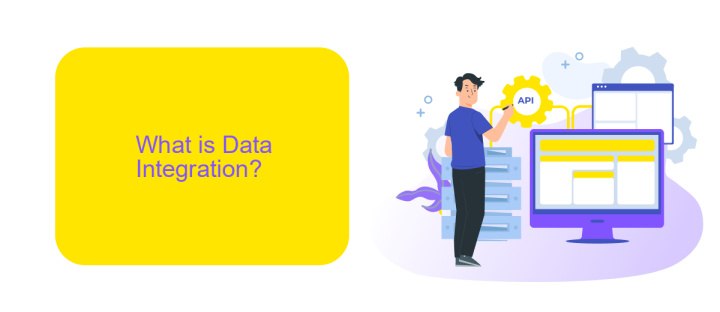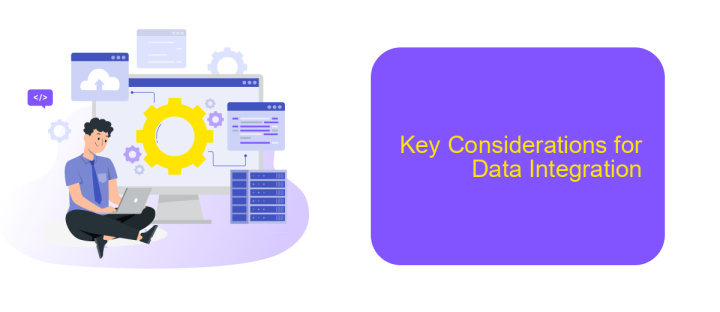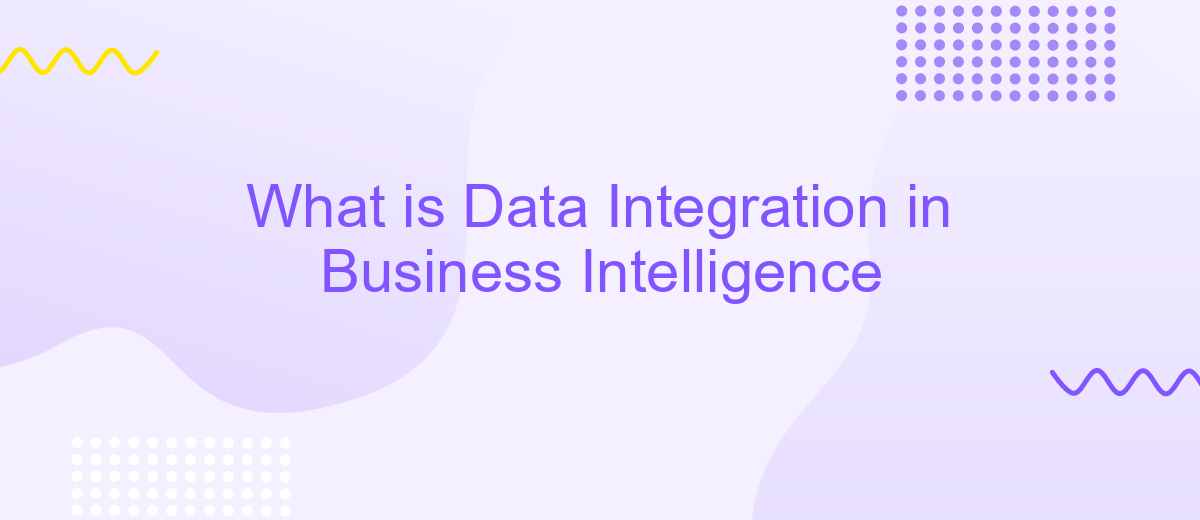What is Data Integration in Business Intelligence
Data integration in business intelligence (BI) involves combining data from various sources to provide a unified view that supports decision-making processes. By merging disparate datasets, businesses can uncover valuable insights, streamline operations, and enhance strategic planning. This process is essential for transforming raw data into actionable intelligence, enabling organizations to stay competitive in an increasingly data-driven world.
Introduction
Data integration plays a crucial role in business intelligence, enabling companies to consolidate information from various sources into a unified view. This process helps organizations make informed decisions by providing a comprehensive understanding of their data landscape. As businesses grow, the complexity and volume of data increase, making effective data integration essential for maintaining competitive advantage.
- Combining data from multiple sources
- Ensuring data consistency and accuracy
- Facilitating real-time data access
- Enhancing data-driven decision-making
To streamline data integration, many organizations turn to specialized services like ApiX-Drive. This platform simplifies the process by automating data transfers between various applications and systems, ensuring seamless and timely data flow. By leveraging tools like ApiX-Drive, businesses can focus on analyzing and utilizing their data rather than getting bogged down by the technicalities of integration.
What is Data Integration?

Data integration is the process of combining data from different sources into a single, unified view. This process is crucial for businesses that rely on multiple data streams to make informed decisions. By integrating data, organizations can ensure that they have a comprehensive and accurate view of their operations, which can lead to better insights and more effective strategies. Data integration involves various techniques and tools to extract, transform, and load data from various systems, databases, and applications into a central repository.
One of the key aspects of data integration is the ability to automate and streamline the process. Services like ApiX-Drive facilitate this by offering a platform that connects different applications and data sources without the need for extensive coding. ApiX-Drive allows businesses to set up integrations quickly and efficiently, ensuring that data flows seamlessly between systems. This not only saves time but also reduces the risk of errors, enabling businesses to focus on analyzing and leveraging their data for strategic decision-making.
Benefits of Data Integration

Data integration plays a crucial role in the realm of business intelligence by consolidating disparate data sources into a unified view, enabling more comprehensive analysis and decision-making. Businesses can harness the power of integrated data to gain actionable insights, streamline operations, and enhance overall efficiency.
- Enhanced Decision-Making: By merging data from various sources, businesses can access a holistic view, leading to more informed and timely decisions.
- Improved Data Quality: Integration helps in identifying and rectifying inconsistencies and redundancies, ensuring more accurate and reliable data.
- Operational Efficiency: Automated data integration processes reduce manual efforts, saving time and minimizing errors.
- Scalability: Solutions like ApiX-Drive facilitate seamless integration of multiple data sources, allowing businesses to scale their data management efforts with ease.
- Cost Savings: By optimizing data management processes, businesses can reduce operational costs and allocate resources more effectively.
Utilizing services such as ApiX-Drive can significantly simplify the integration process, offering user-friendly interfaces and robust functionalities to connect various data sources effortlessly. This empowers businesses to focus on strategic initiatives rather than getting bogged down by complex integration challenges.
Key Considerations for Data Integration

When implementing data integration in business intelligence, it is crucial to consider several key factors to ensure seamless and effective integration. One of the primary considerations is data quality. Ensuring that the data being integrated is accurate, complete, and consistent is essential for making informed business decisions.
Another important factor is the compatibility of different data sources. Businesses often use multiple platforms and systems, so it is vital to ensure that these systems can communicate and share data effectively. This is where integration services like ApiX-Drive can be incredibly valuable, as they facilitate the connection between various applications and automate data transfer processes.
- Data Quality: Ensure accuracy, completeness, and consistency.
- Compatibility: Check the compatibility of different data sources.
- Security: Implement robust security measures to protect data.
- Scalability: Plan for future growth and increased data volumes.
Lastly, consider the scalability of your data integration solutions. As your business grows, the volume of data will increase, and your integration processes must be able to handle this growth. By addressing these key considerations, businesses can create a robust and efficient data integration strategy that supports their business intelligence initiatives.
- Automate the work of an online store or landing
- Empower through integration
- Don't spend money on programmers and integrators
- Save time by automating routine tasks
Conclusion
In conclusion, data integration is a cornerstone of effective business intelligence, enabling organizations to consolidate disparate data sources into a cohesive and comprehensive view. By harmonizing data from various platforms, businesses can derive actionable insights, streamline operations, and make informed decisions. The process involves not only the technical integration of data but also ensuring data quality, consistency, and accessibility across the organization.
Tools like ApiX-Drive play a crucial role in simplifying the data integration process. ApiX-Drive allows businesses to automate data transfers between different systems, reducing the manual effort and potential for errors. With its user-friendly interface and robust functionality, ApiX-Drive helps companies to seamlessly connect their data sources, ensuring that the right information is available at the right time. As businesses continue to evolve in the digital age, effective data integration remains essential for maintaining a competitive edge and driving sustainable growth.
FAQ
What is Data Integration in Business Intelligence?
Why is Data Integration important for businesses?
What are the common challenges in Data Integration?
How can businesses automate Data Integration processes?
What are the benefits of using automated Data Integration tools?
Time is the most valuable resource in today's business realities. By eliminating the routine from work processes, you will get more opportunities to implement the most daring plans and ideas. Choose – you can continue to waste time, money and nerves on inefficient solutions, or you can use ApiX-Drive, automating work processes and achieving results with minimal investment of money, effort and human resources.


